- Established 1982 -HOME: www.hiltonpond.org
THIS WEEK at HILTON POND Subscribe for free to our award-winning nature newsletter (Back to Preceding Week; on to Next Week) |
| A SURPRISING
LATE WINTER WILDFLOWER
All text, maps, charts & photos © Hilton Pond Center HARRY vs. PHIL UPDATE Just a note to remind folks that efforts by Punxsutawney Phil, the Pennsylvania Woodchuck, to hoodwink folks about winter/spring weather have been soundly debunked by Hilton Pond Harry (above), the Center's esteemed and ever-accurate White-footed Mouse, Peromyscus leucopus. You need evidence? Well, on Groundhog Day (2 February 2020), fake Phil failed to see his shadow at dawn and predicted an early spring, while honest Harry exited his burrow in bright morning sunlight to forecast six more weeks of winter. As witness to Harry's reliability (and Phil's foolishness), in five weeks and two days since Groundhog Day (through 10 March) Hilton Pond has experienced TWO snow events covering three days--plus NINE nights during which the temperature was 30° or lower (including a frigid 25° on 22 February). Does this sound like "early spring" to you? Of course not. Next year, put your faith in Hilton Pond Harry, not fickle Phil. You'll be glad you did. All text, maps, charts & photos © Hilton Pond Center
All text, maps, charts & photos © Hilton Pond Center A SURPRISING LATE WINTER WILDFLOWER In 1982 when we first came to what is now Hilton Pond Center, the 11 acres had been fallow for perhaps three years--prior to which it was a working farm for at least a century. Grazing and row crops had depleted the soil, and herbaceous plants were few; instead there were mostly Blackberry vines, Broomsedge, and Eastern Red Cedars (above), punctuated by invasive Chinese Privet and Japanese Honeysuckle. Wildflowers were especially hard to find, likely because a hundred years of plowing had killed any seeds or rootstock of herbs and forbs native to the Carolina Piedmont. During the past 39 years at the Center we've inventoried a surprisingly small but slowly growing number of native wildflowers, so each year as winter wanes we're alert for any ephemeral blooms we might have overlooked. This year, in early March we were surprised (no, stunned) at dusk to come across a new native wildflower species that elsewhere has been one of our all-time favorites. And here it was at Hilton Pond--growing a mere 20 feet away from the office window of our old farmhouse!
All text, maps, charts & photos © Hilton Pond Center We recognized the plant's nearly prostrate leaves (above) from past experience, its elongate mottled green and purple foliage so distinctive the species could hardly be confused with anything else. It is sometimes confusingly called Yellow Dogtooth Violet (because of the tooth-like shape of its white, seldom-seen subterranean bulb), but it's not a violet at all.
All text, maps, charts & photos © Hilton Pond Center Trout lilies can sprout from seed, producing a single mottled leaf during the first year, and later on two. ("Immature" one-leafed individuals do not flower.) That implies the specimen we found was at least two years old, so how we missed it last year (or even earlier) is a puzzlement: It was growing right beside a well-traveled trail leading to feeders and traps we use almost daily for bird banding. Perhaps previously the foliage was covered by leaf litter, of which we have plenty in the intentionally un-raked yard around the old farmhouse. The next question would be where our trout lily's seed came from in the first place--there apparently being no other colonies anywhere near--and especially since dispersal is primarily by ants attracted by each seed's nutritious lipid- and oil-rich fleshy appendage called an elaiosome.
All text, maps, charts & photos © Hilton Pond Center Yellow Trout Lilies can be highly colonial in hardwood stands across eastern North America, with local propagation occurring primarily when the bulb produces an underground stem that eventually forms a new bulb and new plant. Such colonies can develop into extensive mats (above) that are quite long-lived; one documented colony is more than 300 years old. (There are numerous other Erythronium species, most in the western U.S. where they range in color from deep pink to white to yellow. Taxonomists now recognize a second yellow southeastern species, E. umbilicatum, Dimpled Trout Lily, with pale brownish spots or stripes on its inflorescence. The dimpling refers to a depession on the seed pod. Some authorities claim this "new" species is actually far more common than E. americanum.) The morning after we discovered our new wildflower prize at Hilton Pond Center, we went out with camera, tripod, and macro lens to take photos of the bloom. We were sorely disappointed to find something had nipped off the single yellow blossom at the top of the flower stalk; you can barely see withered yellow petals below the apex of the leaves in our top photo. Fleshy leaves of this late winter wildflower at the Center will likewise wither as weather warms, so we'll mark its location and watch for our Yellow Trout Lily again next March. All text, maps, charts & photos © Hilton Pond Center
Checks also can be sent to Hilton Pond Center at: All contributions are tax-deductible on your Don't forget to scroll down for Nature Notes & Photos, |
|---|
|
"This Week at Hilton Pond" is written and photographed by Bill Hilton Jr., executive director of Hilton Pond Center for Piedmont Natural History
|
|
|
Please refer "This Week at Hilton Pond" to others by clicking on this button: |
|

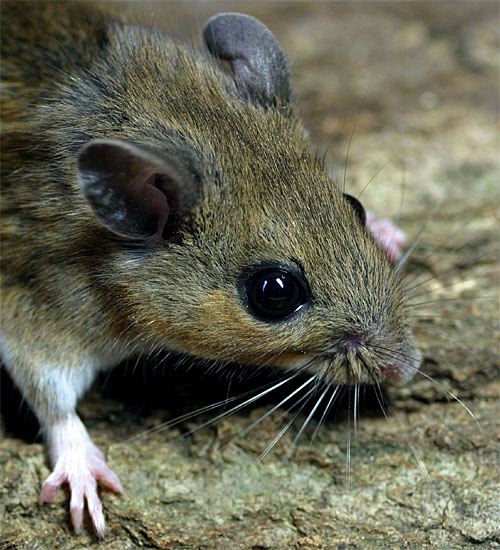
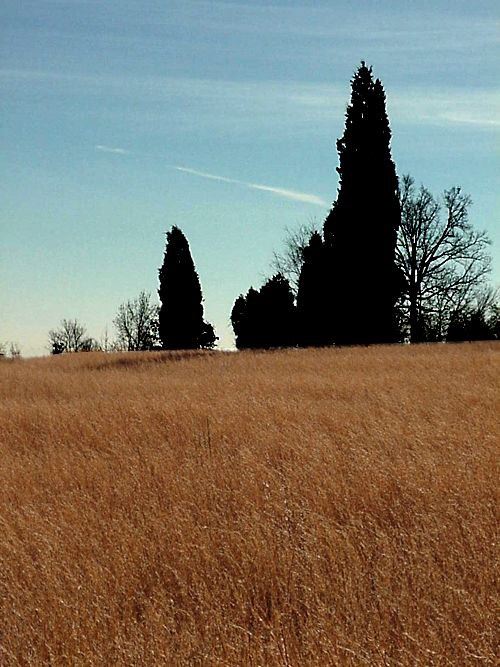
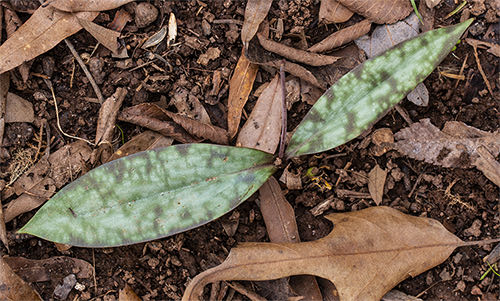
 A better name is Yellow
A better name is Yellow 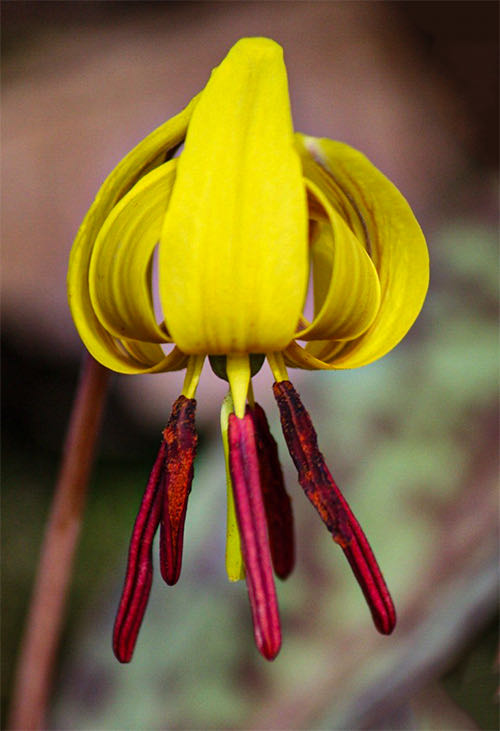
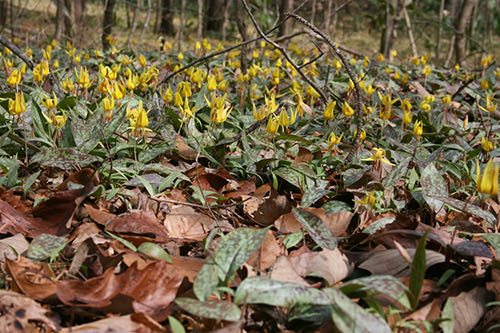



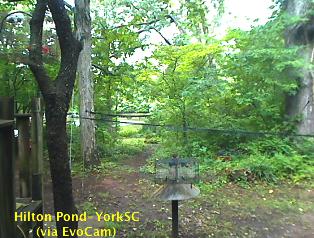






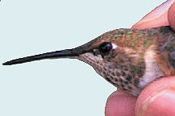 Oct 15 to Mar 15:
Oct 15 to Mar 15: